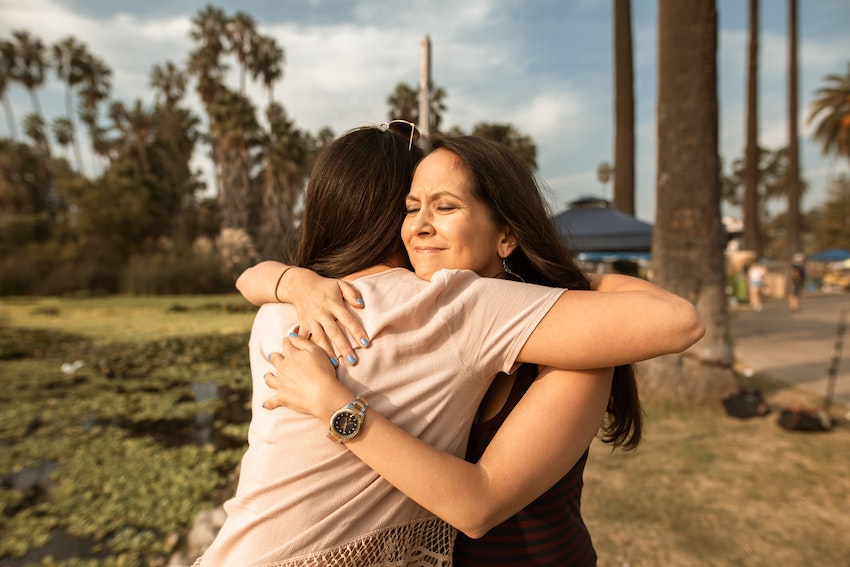You are probably familiar with the expression “forgive and forget” –or perhaps more so with its variation, “forgive but never forget.” Whether forgetfulness should be paired with forgiveness or not, the truth is that forgiveness is important for our health and plays a huge role in addiction recovery.
Before we dive into the science of forgiveness, let’s take a moment to consider what the opposite of forgiveness might be. Dictionary.com lists several antonyms of the word, including:
- Blame
- Cruelty
- Meanness
- Mercilessness
- Punishment
Obviously, none of these options sound helpful or healing. But sometimes, when we’ve been a victim of someone else’s thoughtlessness or cruelty, our inclination leans much more toward punishment than forgiveness.
So, what is forgiveness? Is it accepting someone else’s behavior without asking them to change? Is it excusing someone’s wrongdoings? Is it the absence of pain or the realization that you weren’t actually hurt by someone else’s actions?
According to Reverend Nancy Colier, forgiveness isn’t giving someone a “get out of jail” free card. In an article in Psychology Today, Colier proposes three factors involved in the act of forgiving:
- A certain narrative that has always surrounded a particular person, subject, or event is discarded because it no longer serves for the present moment.
- This discarding of a previous, negative narrative allows for focus on the development and nurturing of the present moment–however it might appear.
- Forgiveness moves the focus away from the offense and back to you and your ability to change, develop, or improve your present situation.
In other words, when someone hurts us, we tend to cling to that memory of hurt and associate it with that person moving forward. Forgiveness involves seeing that person anew, as they are in the present. If they continue to behave in hurtful ways in the present, their behavior can be dealt with in the moment. But in most cases, when we let a person’s past behavior go and focus on who they are in this moment of interaction, we will find that we can connect with them more fully–and in the process of connecting, we can heal from the past.
Forgiveness, then, is not about forgetting what a person did to you. It’s more about consciously choosing to take a person as they are, in the moment, and to relate to them as that moment dictates.
So, what does the forgiveness process actually do for people in recovery?
Mayo Clinic is kind enough to supply readers with an exhaustive list of all the benefits of forgiveness:
- Better functioning relationships
- Improved mental, emotional, and heart health
- Lower levels of anxiety, which lowers blood pressure
- Fewer symptoms of depression
- Greater self-esteem
- A stronger immune system
For individuals in recovery, strong, supportive relationships are key. One of the main factors in successful sobriety is the inclusion of family and close friends in the recovery process.
Forgiveness is essential in building this support system. Family relationships and friendships suffer from addiction, and a collaborative effort to work through past misunderstandings and see loved ones for who they are in the present takes time and commitment. At St. Gregory’s, we encourage all clients to take advantage of our Family Program. This program offers practical tools to help families communicate with, forgive, and set boundaries for each other.
Forgiveness, just like recovery, often takes time and a true desire for change. In the meantime, it’s always a good idea to practice healthy emotional habits, such as:
- Reflection – Reflecting on a situation or event that bogs you down emotionally can help you reach objectivity and gain perspective. Whether you write in a journal or talk with a friend or therapist, reflection helps you to diffuse negative emotions and approach a situation calmly.
- Empathy – Putting yourself in someone else’s shoes can help you understand their motivations. The hurt we cause each other usually comes from feeling a lack of love ourselves.
- Releasing expectations – Don’t confuse expectations with boundaries. It’s important to set boundaries with those who tend to use and exploit us. Expectations, on the other hand, are unspoken assumptions we have about how a person should behave. When we have expectations of someone that we do not communicate with them, we are setting ourselves up for disappointment.
- Self-forgiveness – This may be the most important aspect of recovery. Do what you can to repair relationships and make amends for the hurt you’ve caused others. But, regardless of how others respond, forgive yourself. Give yourself the gift of a fresh start every moment, every day.
Wherever you are in your journey to forgiveness, don’t hesitate to contact St. Gregory Recovery Center in Bayard, Iowa, if you need help overcoming cravings or are ready to address your addiction for the first time. We are here to help.







